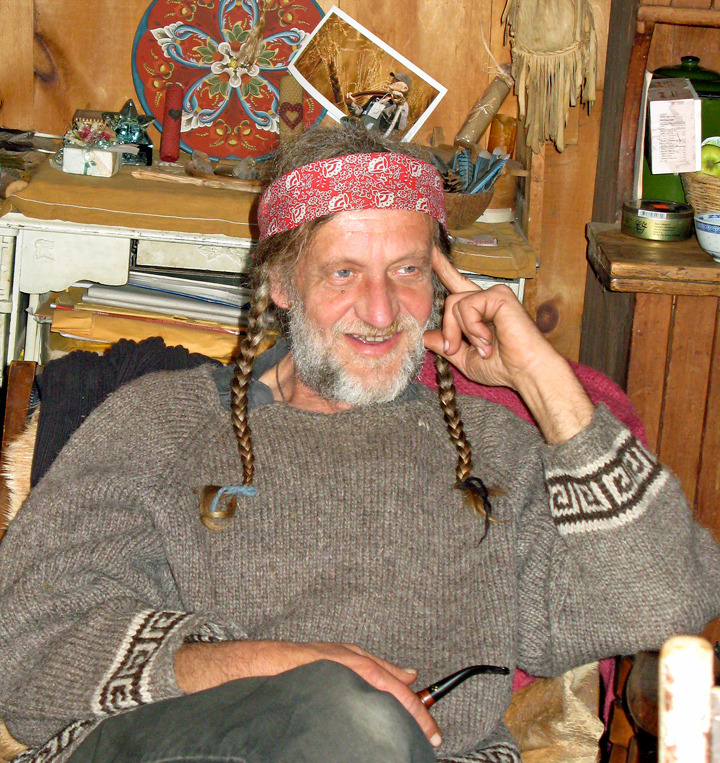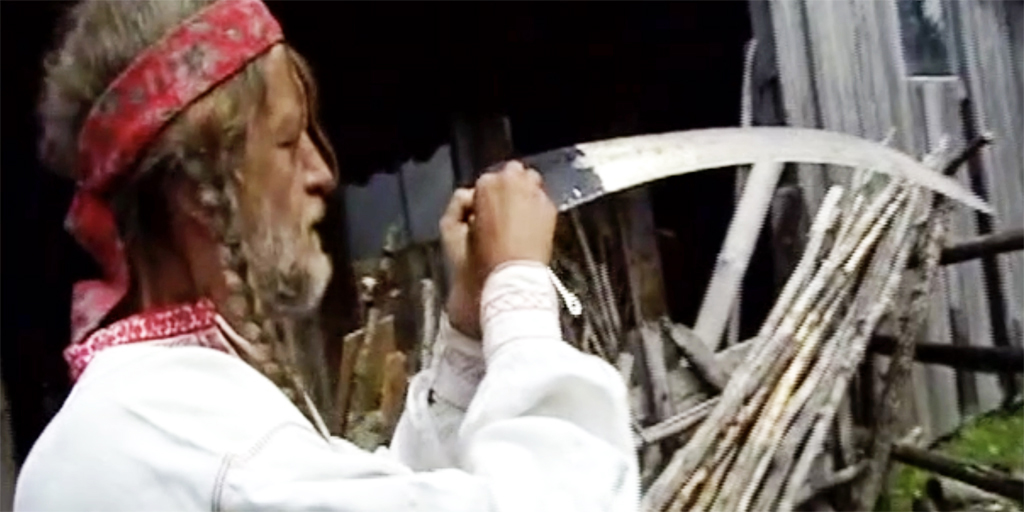About Scythe Works
ScytheWorks has a complete offering of European-style scythes and all needed accessories. We’ve been operating out of Victoria, BC, Canada since 2007.
Some of the reasons why many embrace the scythe:
- ecological responsibility
- preservation of time-honoured skills
- the ability to cut fodder for small-scale livestock feed, grains for human or animal food, and various cover crops
- independence from petroleum-powered tools
- exercise your body and get the job done at the same time
While all above are worthy reasons, my initial motivation was to introduce the scythe as an appropriate technology in the Global South.
During my travels in India and Nepal, I noticed local farmers using sickles for gathering their crops. I thought that introducing the scythe to this region would provide many benefits to these farmers.
I knew that the best place to start would be to visit my brother Peter Vido, who was by then ‘dancing with the scythe’ on his farm in New Brunswick since early 1990s. There I started to understand and appreciate the significance of this tool, beyond its technical nuances and practical applications.
While I was searching the internet for a potential NGO/partner who would share my vision for the Scythe Project in Nepal, I thought that a good way to fundraise for this project would be to sell some scythes in North America. Little did I know that neither of these two tasks would be easy…
Fast forward…
At ScytheWorks, personal service has always been an essential part of my scythe-business activities. Providing proper fit and function is the primary goal. Every scythe outfit ordered from ScytheWorks is custom-fitted for the user’s height, with extra attention given to the optimal pairing of blade and snath. All products are carefully inspected before shipment.
For the Global South, I’m convinced of the significant contributions a scythe could make. After a slow start in Nepal (2012), the Scythe Project in India (2016) is taking off, and the tool has now been recognized by a number of NGOs, approved by government officials, and appreciated by many small farmers.
I’m drawing from all my scythe-related experiences to contribute to the ‘global scythe community’. I’ve visited several scythe factories to work on blade improvements, with the focus on benefits for first-time users. In India, I’m involved with designing scythe outfits for grain and fodder gathering, local production of snaths and accessories. I’m making trips to other countries to continue the introduction of scythes in the Global South.
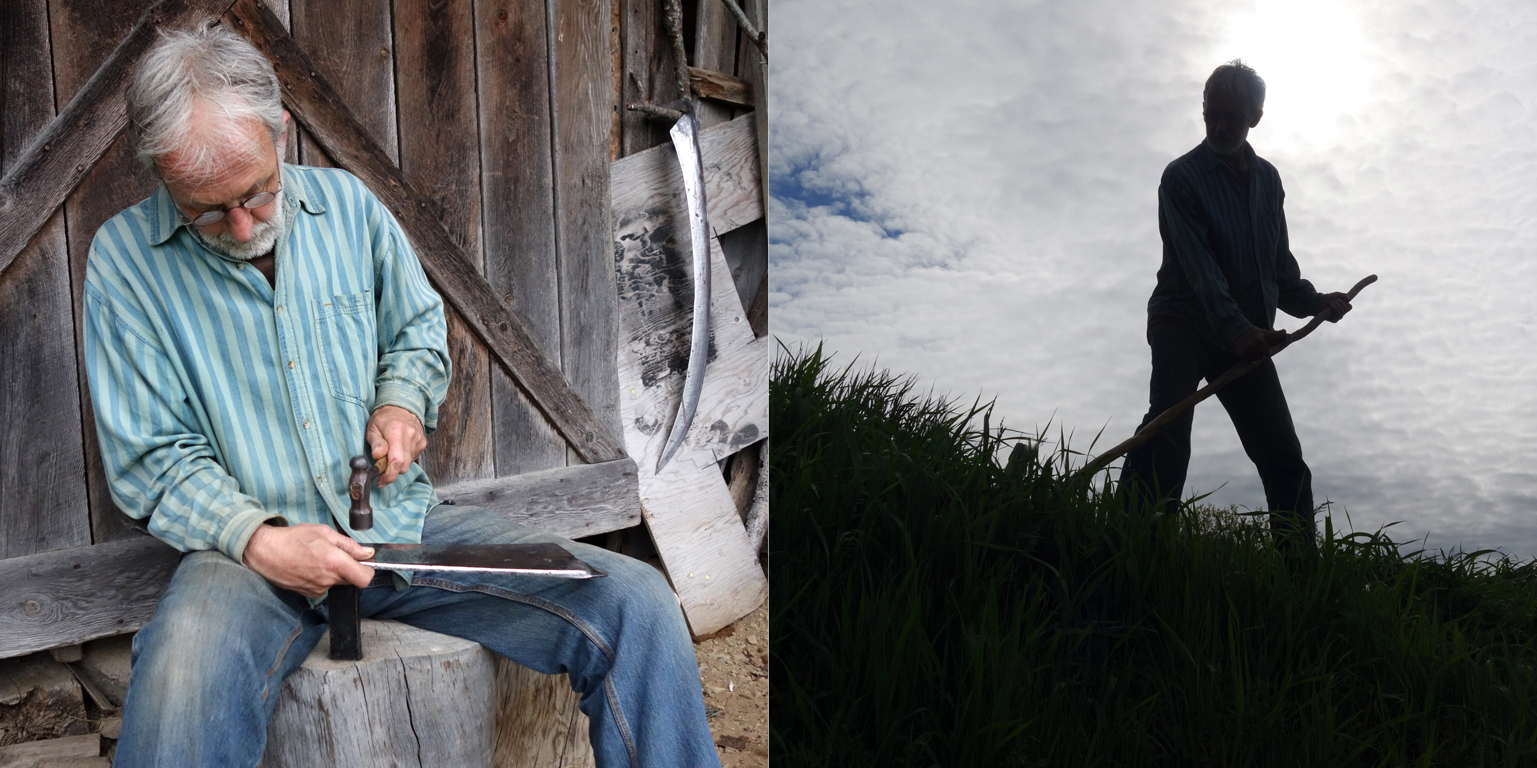
"He is a mower no more..."
Peter Vido, 1950 – 2018
Peter once told me that in some Austrian villages, where haymaking with a scythe was a common practice, they referred to a man’s passing by saying: “He is a mower no more.” Now, six months after we learned about his cancer, with sadness I say: “Peter is a mower no more…” This expression is even more applicable since the scythe became first his passion, then the mission of his life.
Peter will be missed by his friends and family, especially his wife, Faye, and daughter, Ashley, with whom he shared the care of their land and animals. They selflessly looked after him on the farm till the very end.
Even though Peter liked to keep his feet on the ground, he was guided by his vision of the bigger picture, and would often neglect the ‘small necessities’ of daily life. I know their lifestyle was often romanticized, but their focus was on meaningful participation in human existence, rather than an idyllic life on the farm.
A scythe came to Peter’s attention quite innocently, and it soon replaced the horse-drawn sickle mower in their haymaking activities. To better understand the scythe, Peter went directly to the original sources. He travelled to Europe to visit scythe manufacturers, and went to villages to meet with old-timers for whom the scythe was indispensable. He observed the traditional ways the tools were used, and then tested and compared them, seeking the most efficient options. He encouraged others to do likewise. In his view, while some traditions are necessary to sustain a culture, they might also be restrictive, and therefore need to be questioned. He shared his observations with the scythe producers and encouraged them to implement changes to benefit the scythe users. He inspired, organized, and galvanized a new wave of scythe culture in Europe and North America.
At times Peter was demanding, but what he demanded of others he was always ready to match himself. He had little tolerance for someone misrepresenting the facts, especially for their own personal gain.
Peter was my instructor when I visited their farm, and later became my mentor when I decided to take the scythe to Nepal and eventually to India. His long-standing intention was to spread the use of scythes as appropriate technology for small farms around the world. At times our approaches may have differed, but we never questioned our shared vision. Since we lived nearly 6000 km apart, at opposite ends of Canada, we would spend countless hours on the phone. He regularly gave me ‘tutorials’ as we considered designs, discussed techniques, shared experiences, and made plans, looking for a ‘better way’.
It would not have been an exaggeration to refer to Peter as a ‘Living Scythe Library’. He had the ability to acquire, sort, and store huge amounts of information on the subject, and he was always ready to share it freely. Peter wasn’t a ‘simple’ farmer. I always thought of him as a visionary intellectual living on a farm, who viewed himself as a steward of the land in his care.
I will miss my brother greatly…
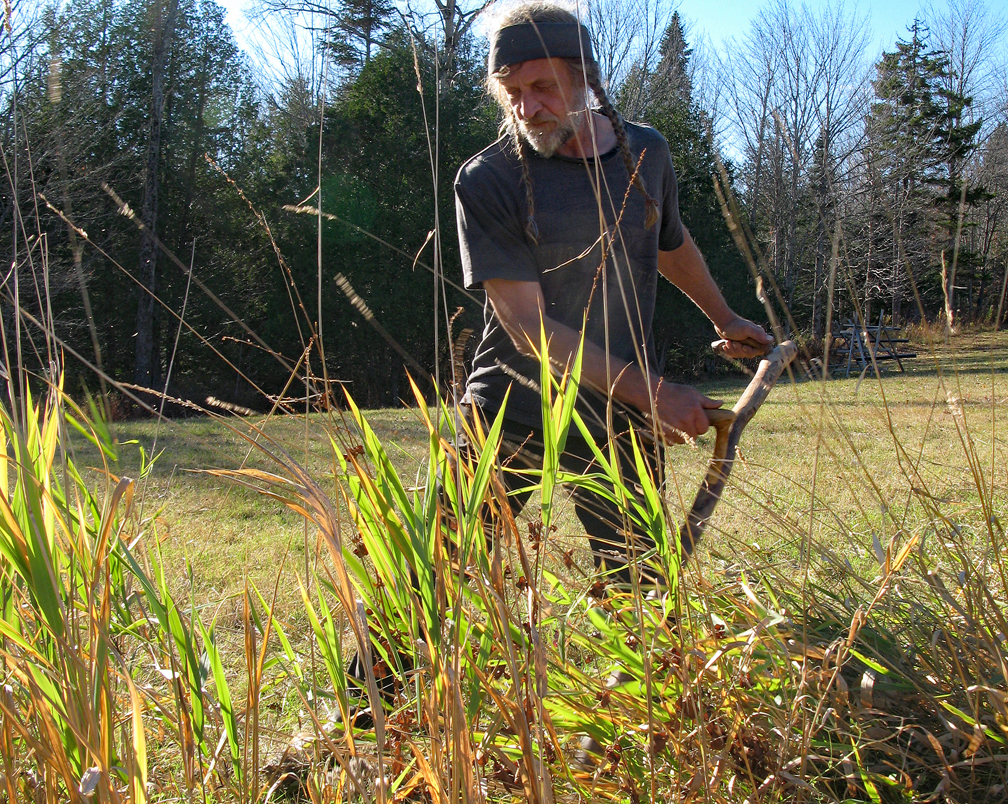
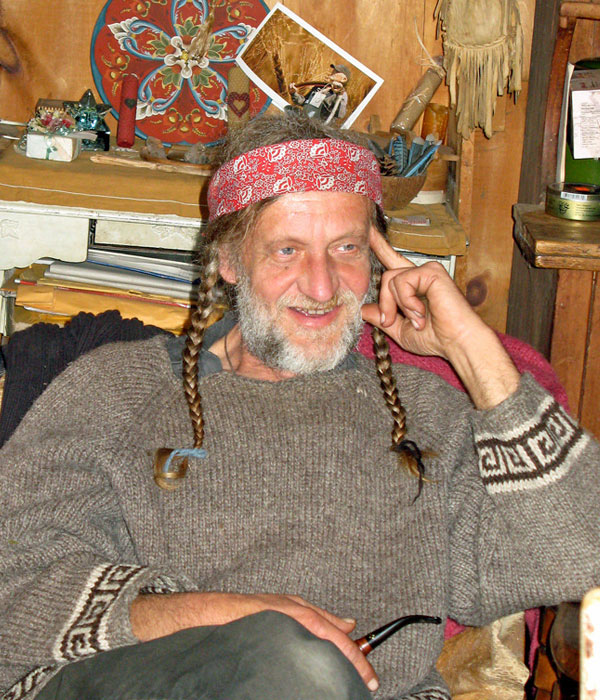
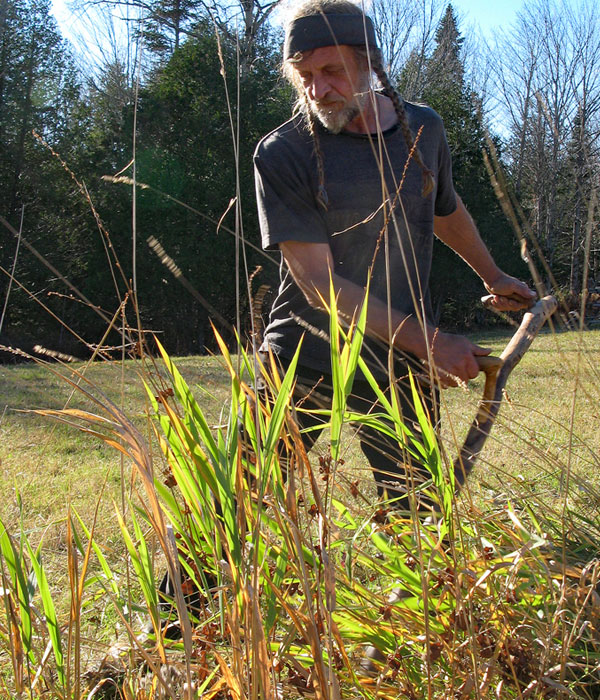
"He is a mower no more..."
Peter Vido, 1950 – 2018
Peter once told me that in some Austrian villages, where haymaking with a scythe was a common practice, they referred to a man’s passing by saying: “He is a mower no more.” Now, six months after we learned about his cancer, with sadness I say: “Peter is a mower no more…” This expression is even more applicable since the scythe became first his passion, then the mission of his life.
Peter will be missed by his friends and family, especially his wife, Faye, and daughter, Ashley, with whom he shared the care of their land and animals. They selflessly looked after him on the farm till the very end.
Even though Peter liked to keep his feet on the ground, he was guided by his vision of the bigger picture, and would often neglect the ‘small necessities’ of daily life. I know their lifestyle was often romanticized, but their focus was on meaningful participation in human existence, rather than an idyllic life on the farm.
A scythe came to Peter’s attention quite innocently, and it soon replaced the horse-drawn sickle mower in their haymaking activities. To better understand the scythe, Peter went directly to the original sources. He travelled to Europe to visit scythe manufacturers, and went to villages to meet with old-timers for whom the scythe was indispensable. He observed the traditional ways the tools were used, and then tested and compared them, seeking the most efficient options. He encouraged others to do likewise. In his view, while some traditions are necessary to sustain a culture, they might also be restrictive, and therefore need to be questioned. He shared his observations with the scythe producers and encouraged them to implement changes to benefit the scythe users. He inspired, organized, and galvanized a new wave of scythe culture in Europe and North America.
At times Peter was demanding, but what he demanded of others he was always ready to match himself. He had little tolerance for someone misrepresenting the facts, especially for their own personal gain.
Peter was my instructor when I visited their farm, and later became my mentor when I decided to take the scythe to Nepal and eventually to India. His long-standing intention was to spread the use of scythes as appropriate technology for small farms around the world. At times our approaches may have differed, but we never questioned our shared vision. Since we lived nearly 6000 km apart, at opposite ends of Canada, we would spend countless hours on the phone. He regularly gave me ‘tutorials’ as we considered designs, discussed techniques, shared experiences, and made plans, looking for a ‘better way’.
It would not have been an exaggeration to refer to Peter as a ‘Living Scythe Library’. He had the ability to acquire, sort, and store huge amounts of information on the subject, and he was always ready to share it freely. Peter wasn’t a ‘simple’ farmer. I always thought of him as a visionary intellectual living on a farm, who viewed himself as a steward of the land in his care.
I will miss my brother greatly…

